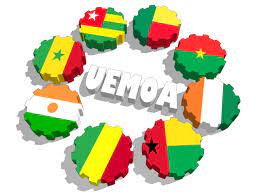The eight member countries of the West African Economic and Monetary Union (WAEMU) are struggling to raise funds on the regional capital market, as investors demand higher interest rates amid tightening liquidity, financial market sources said.
WAEMU IS an organization of eight, mainly French-speaking, states within the Economic Community of West African States (ECOWAS) which share a customs union and currency union.
Côte d’Ivoire, the biggest WAEMU economy, failed to raise 85 billion CFA francs in March, while Senegal, Mali, Niger, and Burkina Faso have cancelled or postponed bond issuance in recent weeks.
After failing to sell bonds issued at an interest rate of around 5.5%, Senegal returned to the market and succeeded to raise the funds at an interest rate above 6%. The failure to raise much-needed funds from the regional market may force states to look for alternative, cheaper financing sources such as the International Monetary Fund (IMF) to avoid budget shortfalls, the sources said.
“There is currently a serious liquidity crisis for states on the regional financial market. The interest rates offered do not reflect the reality of the market,” said Isidore Tanoe, director of Abidjan-based financial services firm Majoris Financial Group.
Côte d’Ivoire’s Finance Ministry has said it plans to raise 3.1 trillion CFA to finance its 2023 budget, with 2.5 trillion CFA expected to come from the regional market and the rest from bilateral aid and funding from a consortium of banks.
Given the deterioration in the region’s fiscal position following global external shocks, countries will have to seek bilateral assistance to avoid budget deficits and continue to finance projects, said Soualiou Fadiga, executive director of the regional stockbrokers association. “There will be a scarcity of financing and the solution for the states is bilateral resources such as from the IMF,” Fadiga added. Senegal will start negotiating for new program at the IMF spring meetings in May, while Côte d’Ivoire has already managed to reach a deal with the global lender earlier this month for a $2.6 billion loan.
